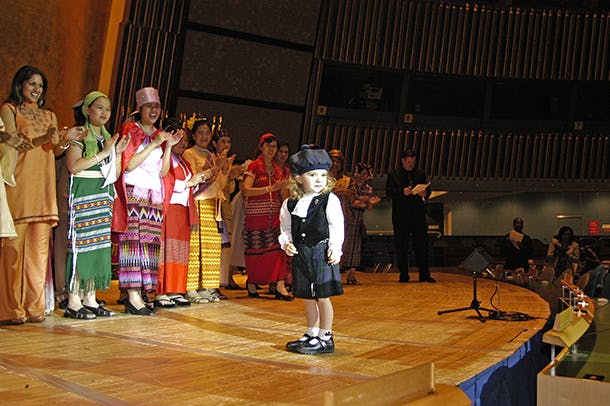
The United Nations has declared November 16 as the International Day of Tolerance. This declaration followed the declaration of 1995 as the International Year of Tolerance.
How our standards have shrunk and how unfortunate it is that we need such a day to remind ourselves of the rising burden of intolerance globally. We now live in a world in which people are increasingly contemptuous of what sociologists call “the other,” increasingly expanding the category of those that constitute this “other,” and increasingly willing and able to inflict harm on the “other.” No wonder the United Nations is reduced to pragmatically declaring an International Day of “Tolerance” in the hope that if we can be nudged toward “tolerating” difference, maybe, sometime in the future, we might be willing to think about taking the next step – from tolerance to celebration.
I say this because “tolerance” is such a tame word. Not only that, it is also a rather patronizing word, and it is a pity that we have to be satisfied with this tame goal in these tumultuous times.
The dictionary defines “tolerate” as “endure” or put up with,” thus implicitly acknowledging that it is something unpleasant or inevitable or difficult that we deal with when we “tolerate” it, along the lines of the proverb “What cannot be cured must be endured.”
Such stoic endurance is all very well in the face of adversity like ill health or natural calamity, but to have to resort to it in the context of living peaceably with neighbors who do not think or look or believe or behave like us is a sad commentary on how ignorantly we look upon these others and how foolishly we glorify ourselves with the belief that these others deserve at most the magnanimity of our “tolerance” of their inferiority, whether of religion or race or nationality or wealth or gender. Without this magnanimity, we would feel quite justified in inflicting harm or deprivation upon those we think of as less deserving or meritorious than ourselves.
Our intolerance of difference is visible today at so many levels – the political, the social, the economic, the ideological, the religious – that a Martian might be forgiven for thinking that our world consists of a few billion different species of human being.
According to researchers, the urge to isolate ourselves with those of our kind and from those who are different may partly be the result of a modern globalization that has thrown very different kinds of people into close contact with one another, thereby heightening the sense of insecurity and fear.
But that this is a very partial interpretation. Two additional factors play into intolerance.
One, there is the failure of our education systems to increase understanding of and empathy for other ways of being, looking, and living.
Secondly, and more importantly, “Hatred is the most accessible and comprehensive of all the unifying agents. Mass movements can rise and spread without belief in a God, but never without belief in a devil” –Eric Hoffer, philosopher and author (1902-1983). And what better devil to hate that the one who does not fit into our own constricting set of clothes – whether of religion or gender or race or nationality.
Until we can overcome these constraints – one environmental and one psychological – perhaps tolerance is the best one can hope for and promote. Later, as knowledge of the “other” increases appreciation and as fear and hatred of the other becomes less necessary to foster self-esteem, a new set of UN goals must consider celebrating and rejoicing rather than tolerance of difference and diversity. Such enthusiastic interest in and pleasure in the “other” will also help us avoid the stultifying boredom of mixing with only one’s own kind – a boredom which might partly explain our general resentments and dissatisfactions with life.



 View All Blog Posts
View All Blog Posts